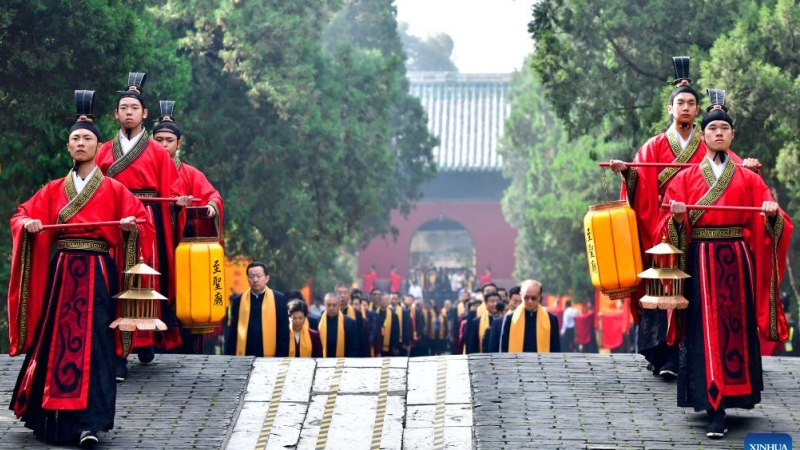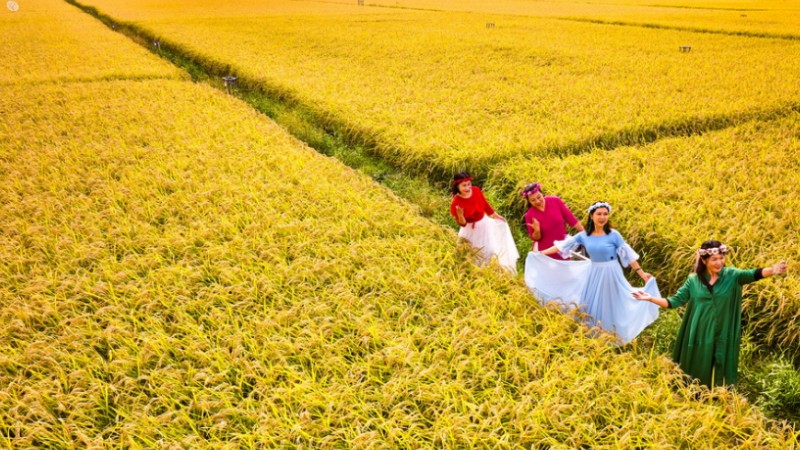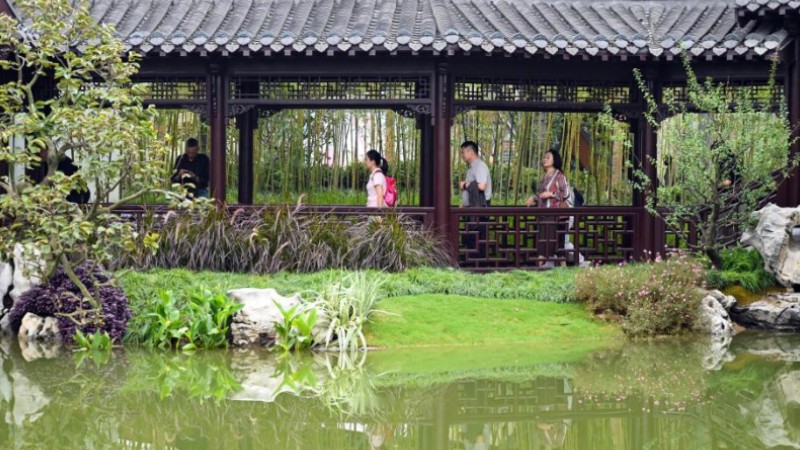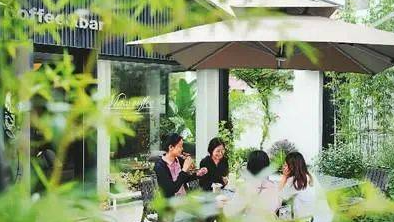Leading by example, Hangzhou Asiad showcases common dreams and unity despite differences
HANGZHOU, Oct. 8 (Xinhua) -- The Hangzhou Asian Games closed on Sunday. There is little doubt that this continental sporting extravaganza has showcased world-leading performances, as records have been constantly broken and unexpected wins have abounded.
Yet the Asiad is also a reminder that sport has a unique power to foster cultural inclusion and bridge a divided society - even in challenging times.
"The Asian Games is not only about sports competition; it is a time to embrace our culture and our heritage," said Olympic Council of Asia (OCA) Acting President Raja Randhir Singh.
DIVERSE SPORTING CULTURE
The number of sports at each Asian Games has varied over time, but the Asiad mainly follows the program of the Olympic Games, with athletics and swimming as core events.
The Hangzhou Asian Games features 40 sports in total, 61 disciplines and 481 events, with breakdancing and esports making their debuts as official medal sports. It also features disciplines which reflect the diverse sporting culture of the continent, such as Southeast Asia's sepak takraw, South Asia's kabaddi and cricket and Central Asia's kurash.
Sepak takraw has been described as kick volleyball, with players not allowed to touch the ball with their hands. Originating from India, kabaddi is a contact sport, with one player from the attacking side, a "raider", needing to tag as many defensive players as possible before making it back to his half of the court.
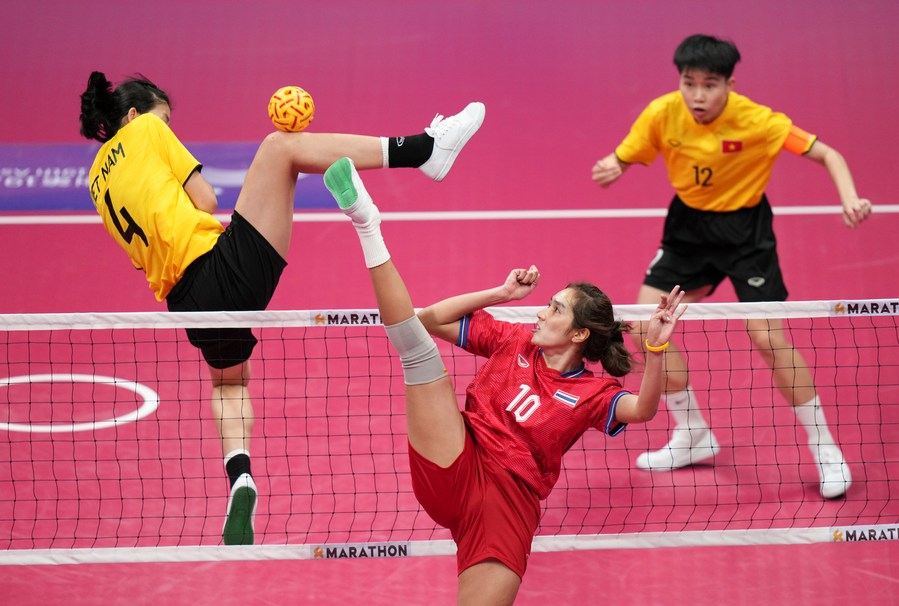
Tran Thi Ngoc Yen (L) of Vietnam blocks the net against Somruedee Pruepruk of Thailand during the women's Regu gold medal match of sepak takraw at the 19th Asian Games in Jinhua, east China's Zhejiang Province on Oct. 7, 2023. (Xinhua/Chen Zhonghao)
In Hangzhou, only 10 countries and regions competed in kabaddi. For sepak takraw, 11 countries participated in the men's category, and 10 competed in the women's category.
Wei Jizhong, Honorary Life Vice-President of OCA, said that the inclusion of these niche sports at the Asian Games has given smaller nations a chance to win medals that are out of their reach at the Olympics. "Winning medals is important for them, because it will help obtain more government funding," he said.
Wei's comments were echoed by representatives of those sports.
"I think it actually opens [a window] to many people to show how capable we are in front of the world," said Nigar Sultana, captain of the Bangladesh women's cricket team.
Bangladesh had hoped to improve on the two silver medals they had won at cricket's two previous Asiad tournaments - Guangzhou 2010 and Incheon 2014. But a bronze medal finish in Hangzhou was still a success.
"Every team comes with an aim to win the highest honor. It is better to return home with something than nothing. The whole team is proud and happy," said Sultana.
More importantly, through the years, the Asian Games has provided local sports with a much-needed platform to go international and even make the jump up to the Olympic program.
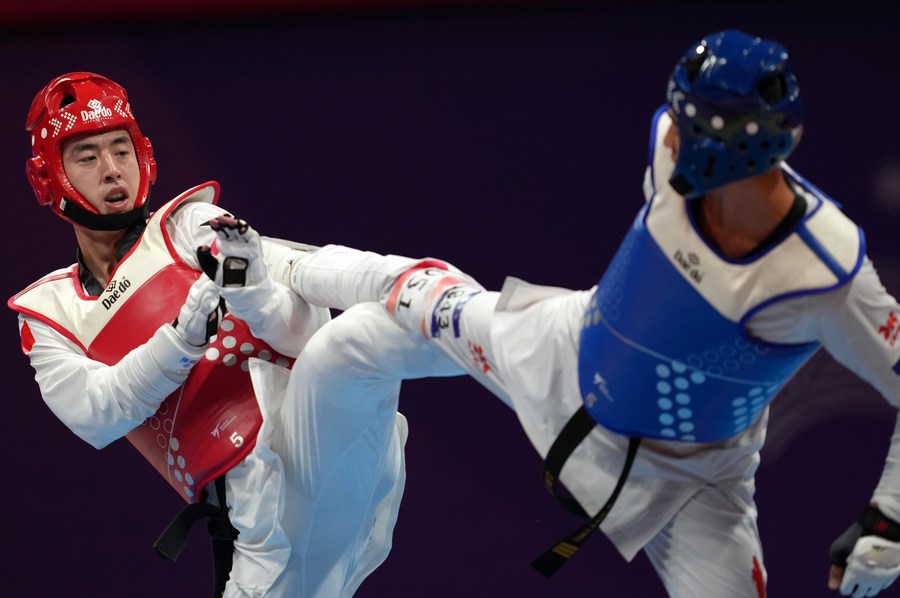
Song Zhaoxiang (L) of China competes against Iran's Arian Salimi during the men's +80kg taekwondo gold medal contest on Sept. 28, 2023. (Xinhua/Jiang Wenyao)
Taekwondo was first included at the Asian Games in 1986 before it became a full medal sport at the 2000 Olympic Games in Sydney, Australia. The Korean-style martial art has featured at every Olympic Games since then.
Karate made its Asian Games debut at Hiroshima in 1994, and after decades of pursuit, was one of five new sports added to the Olympic program at Tokyo 2020.
ASIAN UNITY
Although sport is mainly about competition, the Asian Games has always proved that sport can help in the de-escalation of crises through promoting values of respect, peace, unity and cooperation.
In 2002, for the first time in history, DPR Korea and South Korea had a unified delegation march together under a unified Korean flag at the opening ceremony of the Busan Asian Games.
In 2018, the two countries marched under the same flag again at the opening ceremony and assembled joint teams in women's basketball, canoeing and rowing.
Though the state of inter-Korean relations is different now from the previous Asian Games in 2018, the Hangzhou Asiad saw many other acts of mutual respect and friendship.
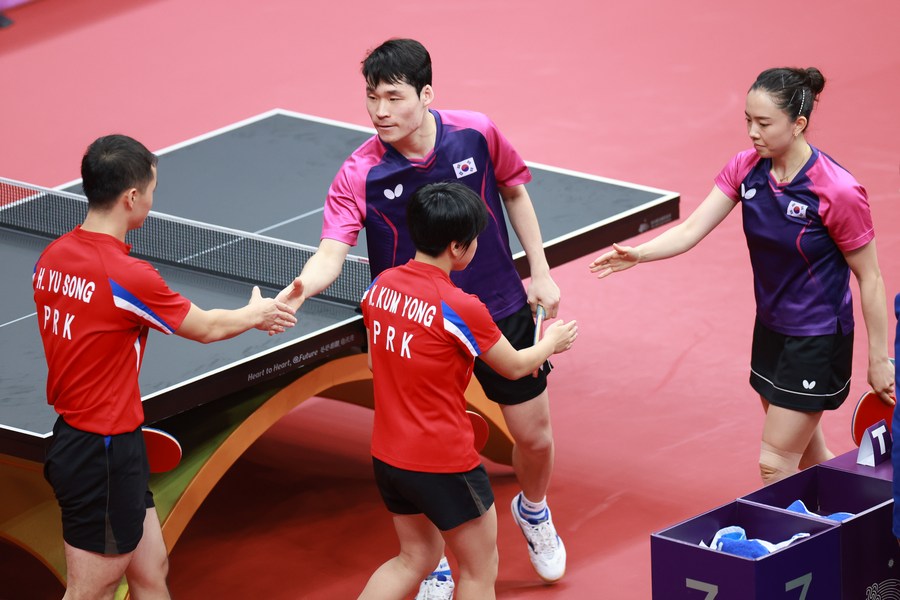
Ham Yu Song (L) and Kim Kum Yong of DPR Korea shake hands with Jang Woo-jin (Top) and Jeon Ji-hee of South Korea after their table tennis mixed doubles round of 16 match on Sept. 28, 2023. (Xinhua/Liu Xu)
Chinese swimmer Zhang Yufei and her Japanese rival Rikako Ikee shared a heartfelt hug after the latter staged a comeback from a leukemia diagnosis in 2019 to take a bronze medal in the women's 50m butterfly.
Zhang said, "I told Rikako, 'don't cry, don't cry.' When they announced her name on the podium, I already felt like crying. But I thought to myself, this is a live telecast, I cannot cry. Then I saw her hugging her coach in tears. I could not hold back my tears anymore."
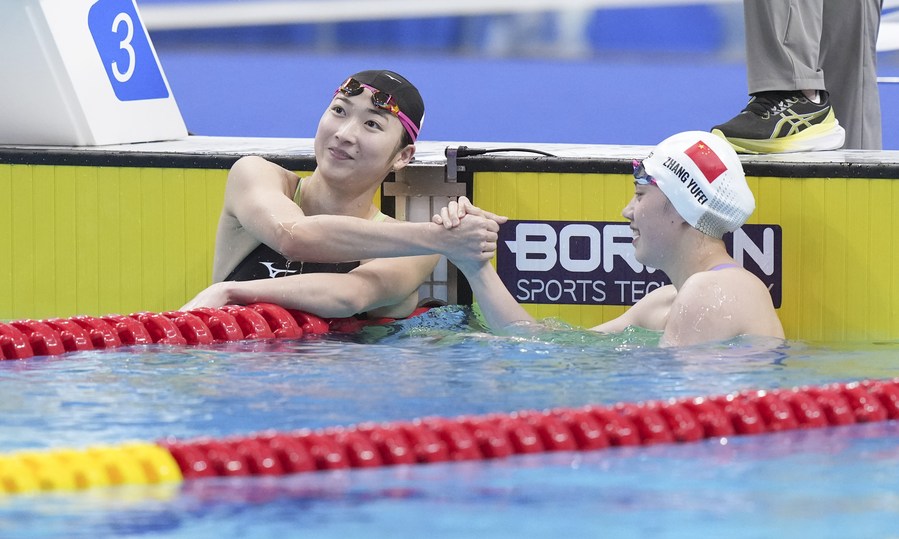
Zhang Yufei (R) of China shakes hands with Japan's Rikako Ikee after the women's 50m butterfly final on Sept. 29, 2023. (Xinhua/Du Yu)
Solidarity also means actively helping, sharing and caring for one another.
Pole vaulter Ernest John Obiena, who clinched the Philippines' first gold medal at these Asian Games, faced logistical challenges with the Philippine delegation when he arrived in Hangzhou ahead of the official opening of the Games. Hussain Al-Hizam of Saudi Arabia offered Obiena to stay with the Saudi camp and share the training facilities.
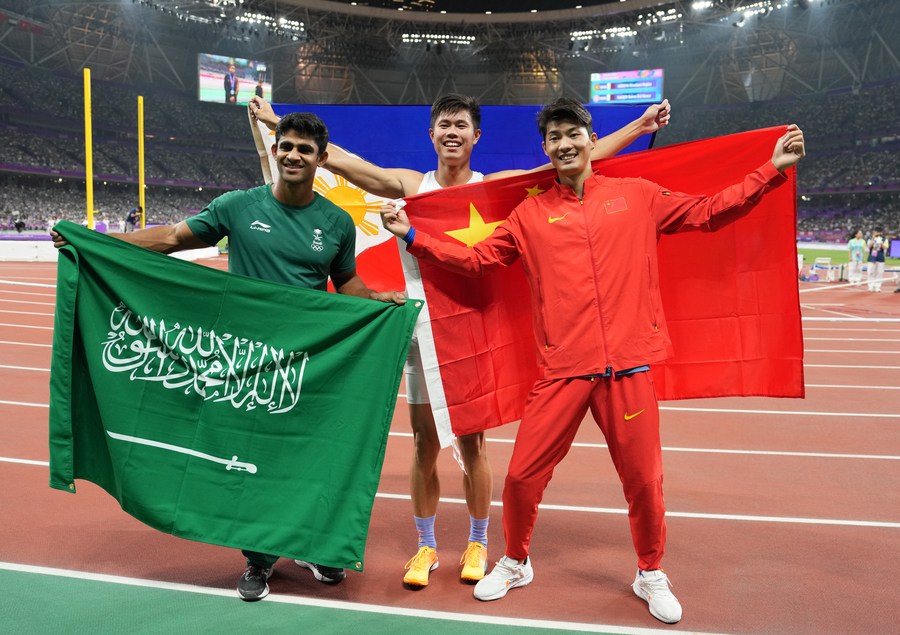
Ernest John Obiena (C) of the Philippines, Huang Bokai (R) of China and Hussain Asim M Al Hizam of Saudi Arabia celebrate after the men's pole vault on Sept. 30, 2023. (Xinhua/Li Yibo)
Boxers from Jordan and Iran held a joint training camp in Amman prior to the Hangzhou Asiad, while more than 100 Cambodian athletes from 11 sports trained in different provinces in China in preparations for the Asiad.
Charoen Wattanasin, vice president of the Thai Olympic Committee, expressed his fondness for the Hangzhou Asian Games' slogan - "Heart to Heart, @Future".
"It is very important to strengthen peaceful relations among nations in today's global landscape," said Wattanasin, who previously participated in the Asian Games as a badminton player and later as a sports official.
"The Asian Games serves as a significant platform for cross-cultural exchanges and friendship."
Indeed, if nothing else, what the Asian Games can teach us all is that while the athletes and nations compete across an array of events, it is the coordinative nature of all that allows for the possibility to exist.
Photos
Related Stories
- OCA acting president declares Hangzhou Asian Games closed
- Indonesian girl relishes volunteer experience in Hangzhou Asiad
- Chinese delegation reaches targets at Hangzhou Asiad: official
- Closing ceremony of 19th Asian Games held in Hangzhou
- Thailand taekwondo team harvests experience, friendship at Hangzhou Asiad
Copyright © 2023 People's Daily Online. All Rights Reserved.






